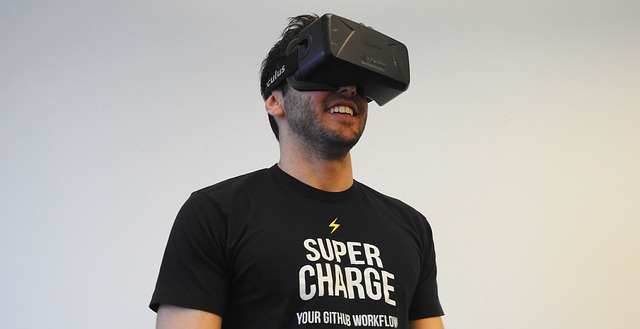Can You Sleep with Headphones On?
Table of Contents
Sleep doesn’t come easy for everyone. It’s not just because of increased pandemic stressors. But the daily grind combined with electronics has seen our quality of sleep impacted negatively.
However, technology has come to the aid of many where sleep medication and mindfulness have failed. We are talking about drifting to sleep with music in your ears.
Still, for most people, the question lingers. Can you sleep with headphones on? Are there consequences?
Let’s answer these questions and more in today’s post.
Why Would You Sleep with Headphones?
Cancel Out Background Noise
With most of us living in metropolitan cities, there’s never a time that you can say the night is silent. Either someone’s car alarm is going off, dogs are barking, or there’s a nearby construction going on.
It means struggling to get to sleep or wearing a pair of headphones to lull yourself to sleep.
Headphones are necessary for blocking out noise that could otherwise disrupt your sleep. A good pair can have noise-canceling features. This attribute of headphones can cut noise from traffic, a snoring partner, and noisy neighbors. Those living in apartments can attest to this.
Relax the Mind
Experts say that the easiest way to sleep is by boring the mind. That’s why some people prefer to put on audiobooks instead of their favorite music. Studies also show that classical music can improve the quality of sleep. Fact is, sleep doctors, say headphones are generally safe.
As such, you can use them to relax the mind so you can fall asleep fast.
Need for Noise in the Background
Insomniacs the world over are now turning to headphones to make it easy to fall asleep. This is especially the case if there’s pin-drop silence. It can be unnerving. As a result, your ears and eyes are alert to every little thing that happens. With background noise like white noise, music, or podcasts, your body can relax. Your brain doesn’t need to be on the alert. The result is easy and deep sleep.
How To Sleep with Headphones
Now that you can sleep with headphones on, it’s time you learn how to sleep with them without waking up with an aching neck and tired ears.
Choose Wireless Headphones
Unless you sleep on your back, headphones can be very uncomfortable for side sleepers. That’s where wireless earbuds come in handy. They are a comfortable solution since you won’t deal with tangled wires when you twist and turn.
And the best thing, you can wear only one. So, if you usually sleep on your left side, you can wear the earbud in your right ear. However, you may have to deal with low battery life since most of them can last five hours only.
Get a Special Pillow
Though not made for headphones, a special pillow can make it easy to sleep with headphones. For example; the Original Pillow with a Hole. This pillow was designed for people who’ve just undergone ear surgery. It has a hole that is large enough to accommodate headphones.
Such a pillow can relieve pressure from the earcups to provide comfortable listening. It also prevents the smashing effect of standard pillows to the ears. Plus, if you’re using wired headphones, you can thread them under the pillow. This prevents the wires from twisting and potential strangulation.
Invest in a Travel Pillow
A travel pillow is also an excellent idea for avid travelers and at home. It’s a good choice for over-the-ear headphones with a headband.
Travel pillows come in a U-shape. They allow the headphones to stay on the pillow so that you don’t smash your ears. So, in the same way with pillows with a hole, you will be more comfortable than with a normal pillow.
Nevertheless, when looking for a travel pillow, it’s best to get one with a snap or tie to get the U shape together.
Still, you may find the travel pillow and pillow with a hole too thin to raise your head. As such, you can always use a regular pillow under the headphone pillow for more support.
Try Sleeping on Your Back
Yes.
You’ve had your sleeping position for ages. But if your headphones are constantly pressing on your ears, you may want to try sleeping on your back. This way, you’ll release the pressure caused by the headphones to the ears.
What Are the Benefits of Sleeping with Headphones?
Wearing headphones to sleep comes with its benefits. They can help you feel calm and relaxed to enjoy a good night’s sleep.
Here are some more advantages.
Improves Sleep Quality
Deep sleep has a way of getting you into a better mood. If you sleep with headphones on, you can fall asleep faster, longer, and you’ll get into REM sleep. As a result, it improves sleep efficiency and leads to better sleep overall.
Can Help Treat Sleeping Disorders
Many sleep doctors prescribe music before bed. It relaxes the mind rather than stimulating it. So, if yoga and mindfulness are not cutting it, relaxing music on your headphones can be the lull you need.
Wake Up to Good Vibes
When you sleep better, you’ll wake up feeling great. It can set your day for success since you won’t be grumpy from listening to a procession or traffic.
Boosts Your Emotional and Mental Well Being
Falling asleep to something relaxing has been linked to reduced symptoms of PTSD. Music, in particular, stimulates the brain to produce dopamine, a hormone associated with the brain’s reward system. It leads to relief of stress, anxiety, and depression.
Potential Dangers of Sleeping with Headphones
Sleeping with headphones is like two sides of a coin. On one, there are advantages, and on the other, there may be consequences.
Necrosis of The Skin
When headphones and earbuds cause pressure on the skin and the air canal, they can cause the premature death of living tissue. While this is very unlikely to happen, headphones have the potential to cause trauma to skin cells. This trauma is what causes necrosis. When this happens, it can result in partial or complete hearing loss.
Wax Buildup
Headphones can prevent wax from escaping the ear. Wax buildup is not only gross, but it’s also unhealthy. The main consequences include hearing problems and ringing in the ears.
In some cases, wax buildup causes vertigo. This is a health issue that results in dizziness and balance problems.
If you experience discomfort and pain in the ears, it’s best to visit an ENT (Ear, Nose, and Throat) specialist.
Otitis Externa
Also known as external otitis, it is a condition that occurs when the ear canal is irritated. It can result from injury, allergies, or skin problems. It can also come from headphones if they block the ear canal and cause damage.
If you experience pain in the outer ear, itchiness, difficulty hearing correctly, and fluid leaking from the ear, you could be having otitis externa. Again, you’ll want to visit an ENT specialist.
Increased Safety Risk
When you sleep, your brain is naturally alert and prepared for emergencies. The ears send a neurovascular message to the brain that wakes you in case of danger. However, headphones inhibit the ears from hearing what’s around you. As a result, you may not get up in time to deal with calls for help, a smoke alarm, a burglar, etc.
They are Not Always Comfortable for Sleep
Most headphones are bulky. You may struggle to find the best position for sleeping. What’s more, if you use wireless headphones with a control panel, it’s easy to change the setting with every movement. So, you may take longer falling asleep because you need to revert to previous settings.
Is it Safe to Sleep with Noise-Cancelling Headphones?
Noise-canceling headphones mute noise from you and others. They block out low frequencies like airplane engines, snoring, highway noise, or the rumble of a train. They are the best for acute loud noises that can damage hearing.
It’s good to know that noise-canceling headphones are perfectly safe to use when sleeping. Also, they do not pose any health risk since they do not emit low-level radiation like mobile phones.
Can Bluetooth Headphones Cause Cancer?
There are claims that wireless Bluetooth headphones pump radiation to the brain. Some even point to Apple Airpods as potential causes of cancer.
Now, non-ionizing radiation from Bluetooth headphones should not be worrisome. The FDA has set guidelines for radiation-emitting devices. And fortunately, Bluetooth headphones are way below the set levels.
The fact is, Bluetooth headphones give off less radiation than smartphones. So, it’s your mobile phone that should worry you more than Bluetooth earbuds.
Is it Safe for Kids to Sleep with Headphones?
Children are at a higher risk of hearing damage for long hours of listening to music at high volumes through headphones.
Kids have smaller ear canals than adults. It means that the same sound level that you’re comfortable with is much louder for them. Hence, prolonged exposure to high volumes can damage their hearing over time.
With kids, strangulation can happen since they are restless sleepers. The constant turning can often cause wires to twist, preventing blood flow to a part of the body.
Although there’s no safe age for headphones, you should keep kids away from headphones until they can tell you what’s comfortable. Plus, it also helps to use an app that keeps the sound level at a safe range.
Alternatives to Headphones for Sleeping
While foam headphones are effective at blocking out noise, prolonged use can cause damage to the ears. That’s why it’s best to find other options for background noise and drifting to sleep.
White Noise Machine
White noise is probably the most recommended sleeping pills and headphones alternative. To your ears, white noise is kind of soft. However, the reality is that it is a combination of all sound frequencies.
The waterfall-like noise can mask out other noises. As such, it can help you fall asleep easily. This is because it blocks occurring noise by giving you background noise, so you won’t hear what’s happening beyond the white noise.
When choosing a white noise machine, go for one that allows you to adjust the pitch to match your room. It also helps to find a machine with options for the type of noise you want to mask.
Silicone Putty or Moldable Wax Earplugs
If you’re using headphones to block noise, you can opt for moldable wax and silicone earplugs. All you do is mold them to seal the ear canal entrance. They are unlike foam earplugs that go deep into the ear canal.
Earplugs usually have a noise reduction rating of 22-23 decibels. So, if you’re near the subway, which puts off 80dB, you can bring that noise level to below 60, which is lower than normal conversation.
Noise-Canceling Earmuffs
Earmuffs are more comfortable to wear than earplugs. But they are not as effective at blocking out noise. They usually have a noise reduction rate of 15-20dB.
Are There Any Headphones for Sleeping?
Yes.
If you want to block noise, connect to your favorite devices, and sleep comfortably, headphones for sleeping are your best choice. Their design sets them apart. One, they are barely there, meaning you won’t feel their weight on your ears. They also come with noise cancellation features to drown out unwanted noise.
A good example is the Hoomband headband, explicitly made for sleep. It comes with two ultra-flat speakers that sit snug under the foam. And the headband has a 3D mesh that’s soft and thin to regulate temperature.
Other features that you can expect from sleeping headphones are contoured designs, Bluetooth connectivity, and apps to save your favorite music.
Conclusion
Yes.
You can sleep with headphones on. They are the best choices if a noisy environment is making sleep an impossible feat. So, instead of pulling a pillow over your ears, noise-canceling headphones and your favorite piece can help you unwind. Even better, you’ll wake up relaxed.
However, it’s essential to keep a few precautions in mind. As you know by now, headphones can damage your hearing over time. Hence, it’s best to listen safely and get a comfortable pillow to prevent pressure to the ears.




